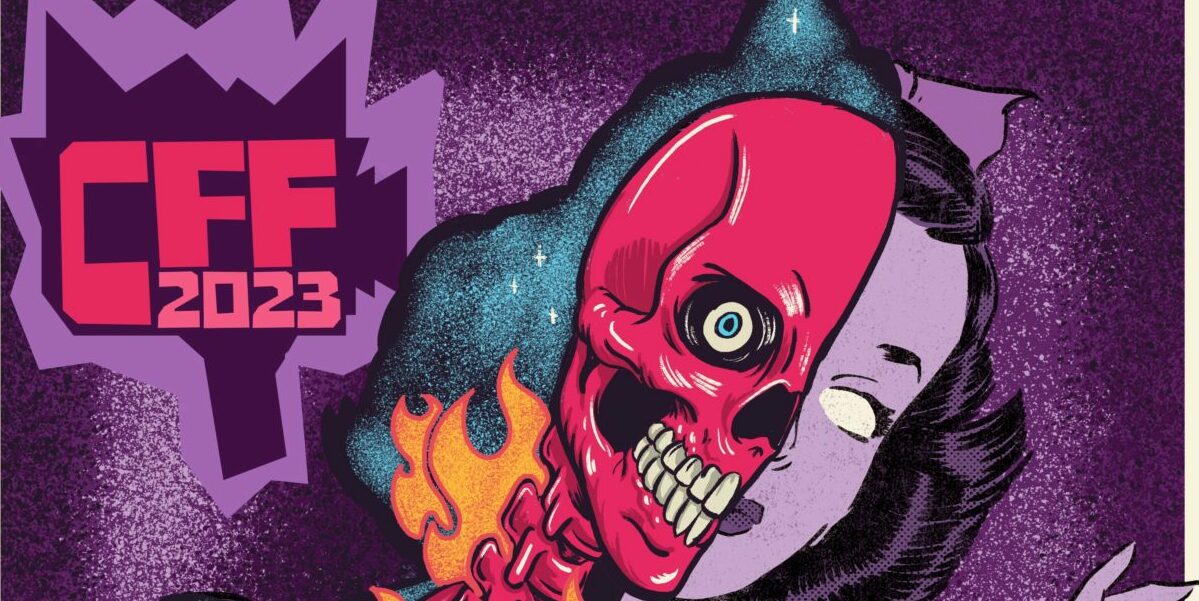


There’s a certain fear that lies within finding one’s own sense of identity, of striking out on your own to try and figure out who you are. Likewise, there’s a fear in digging into your family’s past and finding out who they really were. Alex Henes and Matthew Merenda’s Mind Body Spirit ponders on these concepts and more, blending them together to tell an increasingly unsettling tale that in theory is quite effective, but in execution suffers from a common misstep in horror filmmaking: found footage.
Now, I’ve written quite a bit on the found footage technique and we’ve even done a few episodes of Horror Business on the technique, so I won’t repeat myself on what the technique is, but I will say I’ve seen a lot of great ideas that if filmed in a traditional method would’ve made fantastic horror films in the end fall short because the FF technique wasn’t utilized in a believable way. Unfortunately, Mind Body Spirit is one of those films.

MBS is the story of Anya, a young yoga enthusiast who has recently moved into the old house willed to her by her late grandmother and is in the early stages of attempting to become a yoga influencer YouTuber type. It’s soon revealed that Anya’s mother isn’t too keen on her not only being away from home but also on her being at her own mother’s house, as for some unexplained but very serious reason, Anya’s mother and grandmother were not on speaking terms at the end of the grandmother’s life. A series of inexplicable and eerie events lead Anya down a path to discovering her grandmother’s secret life of witchcraft, and Anya quickly finds herself over her head in bizarre rituals and supernatural occurrences.

Let’s get the rough part out of the way: a lot of this film had me asking myself, ‘why are we seeing this? Why is Anya filming this?’ I can suspend my disbelief when it comes to horror films, but much of Anya’s decisions to film everything is clearly done merely for exposition. She begins filming her every little move in the house, even though much of it has nothing to do with her yoga channel. There are times when Anya is meditating and unaware of the camera and something offscreen moves the camera to just the right angle to films something else happening that we, the audience see, but Anya doesn’t, and then returns to the camera before Anya realizes something is amiss. It’s a variation of a problem a lot of FF films suffer from: footage that is supposed to be rough and amateur is framed just perfectly to capture something horrific, only in this case it’s even more inexplicable and distracting. It gets even more absurd when the camera begins, without explanation, floating around to turn the movie into what looks like a traditionally shot film. The same goes for the quick cut edits in supposedly raw footage. It strains the belief that what we’re seeing is footage that was found and not a traditional orthodox film and it’s really distracting.

All that being said, this is still quite an effective film. The scary parts might come at the cost of inexplicable decisions on Anya’s part of what to film, or even through a camera apparently moved by a ghost, but they are indeed extremely frightening and upsetting. One scene involving a hallucinogenic tea had me rewinding the film several times just to experience the initial shock of what I was seeing, even if it didn’t make much sense on how it was being filmed. The filmmakers are clearly quite talented and knowledgeable not just at crafting effective scares that are very earned, but also at drawing out believable performances from their actors. Sarah J. Bartholomew is incredibly endearing as Anya, selling us a depiction of a young millennial woman desperate to make it on her own all while struggling to find a genuine identity for herself, and largely carrying the film on her own. Madi Bready excels as Kenzi, Anya’s quietly snobbish and condescending childhood friend who has successfully turned her empty headed, platitude filled, culturally appropriating white woman brand of yoga into a money-making machine. Anya’s fury at Kenzi’s “colonizer” behavior is wholly believable as well and comes off as a genuine and deliberate critique of such culture. Bartholomew’s, ah, shift later in the film is a testament to her talent, in that instead of going full throttle she instead utilizes subtle changes in her character’s behavior, just slight enough to be off-putting but not enough to set off any real alarm bells. It’s a blast to watch play out.
Ultimately, as a found footage film I don’t think Mind Body Spirit succeeds. I do, however, believe that it succeeds as a horror film overall. It has a handful of truly chilling moments made even more effective by adept performances and when it wants to scare you it absolutely will. Similarly, its critique of the cultural appropriation of a lot of modern fitness trends (and wider millennial culture as a whole) rings true without coming off as preachy or condescending. It’s not going to win you over if you don’t like found footage films, but it will win you over if you simply want a good scary movie and/or hate yoga influencers.




